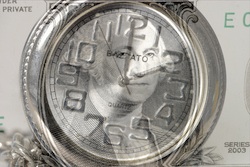Training for brain-based education and literacy
The aim of the training is to create solid pedagogical foundations through applied neuroscience, in order to meet new cultural requirements in a way that ensures benefits for everyone, from the highly gifted unto those in need of support.
Different modules enable teachers, educators and parents / grandparents to get started right away.
Courses are currently offered in English, German and French.
In addition, the material and documents are available in Lithuanian, Italian, Romanian and Czech already.
The training provides:
- Clear understanding of what the brain needs in order to learn as persistently, naturally, and effectively, as it does during early childhood.
- Acquisition of practical skills for holistic support of child development, reading and writing.
-
Neurodidactic * manual and videos, as well as materials for different age groups.
Each module concludes by test and internship and with the European ECVET certificate.
Modules A and B can be completed either as one-week residential course or as correspondence course.
Module C is residential. It is aimed at creative people (poets, writers and musicians, as well as film or sound engineers, performers, programmers and designers).
The
venue is the site of a former high school at the countryside in the Lusatian nature reserves.
To be considered for bursary, candidates will be of legal age and sends a letter of motivation with CV and references.
MODULIAI
Šis sertifikatas įgalina mokyti raidyno ir rašto draugišku smegenims būdu panaudojant pasakoj9mą, kas leidžia vaikams išmokti raidžių ne abstrakčia forma, o gyvo žodžio pavidalu.
Baigusieji mkymus yra įgijė aiškų suvokimą apie smegenų mokymosi ir informacijos kaupimo neurologinius procesus.
This certification enables the graduate to teach the alphabet and handwriting by brain-based approach,
using storytelling to enable children to learn letters in real word terms rather than as abstract shapes.
The graduate has
- a clear understanding of the neurological processes of learning and retaining information.
- the ability to apply this knowledge to literacy tuition.
Šis sertifikatas suteikia teisę sertifikato turėtojui konsultuoti/ teikti pamokas apie smegenims tinkančius mokymo metodus.
Mokymų turinys:
This certification enables the graduate
- to provide methodical advice in terms of brain-based education.
- to design lessons in a brain-based way.
The training includes:

Smegenų biofgrafija
Koi r kokiame amžiuje reikia smegenų ląstelėmsk
Ką gali ir ko negali žmogaus smegenys
SKirtingi berniukų ir mergaičių metodologiniai poreikiai
Biography of the Brain
What brain cells need at which age. The so called critical Phases.
What the brain can and can not do. Neuroplasticity.
Different methodological needs of boys and girls. Body control and intellectual development.

Smegenų dienos tvarkaraštis
Kas daugina ir apsaugo neuronus
Kodėl pamokos turi būt įdomios
Netikėtas ekrane matyto smurto poveikis
Kaip mus keičia kritika
Kodėl siekiama pagyrimų
Kodėl malonumas pries darbą atveda į sėkmę
The day schedule of the brain
What builds and protects neurons. The role of questions, errors and gratefulness.
Why lessons need to be exciting. Tasks of the Hippocampus.
Unexpected impact of violence on the screen. Pavlov's classical conditioning.
How our criticism can change us. In our own brain, we are constantly a programmer.
Why rewards are own goals. What do we connect?
Why pleasure before work leads to success. The biochemistry of learning.
What matters by the end of the day. The 'night shift' of the brain.

IT metodai mūsų smegenyse
Kaip jausmai veikia atmintį.
Streso valdymas: lėto mąstymno apylanka.
Pirmoji ppatirtis – pozityvaus santykio su mokomuoju dalyku nustatymas.
Jūsų “meksikietiškų namų” proto žemėlapis.
Geriausia būdas išmokti naujos kalbos.
Kaip įsiminti ne klaidas, o pataisymus.
IT Technics in the Brain
How feelings affect memory. Purposes of the amygdala.
Stress management: bypassing the 'reptile' brain. Modern means handling stone-age functions.
First encounters - developing a positive relationship with a subject. Central and lateral storage.
Mind-map for your 'Mexican Hat'. Center-Surround Function.
How to connect with a new language as naturally as with the mother tongue. Center-Surround Function.
How to ensure that not the mistake, but the desired correction is remembered. Functions of the Hippocampus.
Šis sertifikatas leidžia absolventui kurti smegenims draugišką
mokymosi medžiagą sertifikate nurodyta kalba.
Sukurtą medžiagą sudaro:
Abėcėlės istorija
Abėcėlės istorijos plakatas
Plakatas, skirtas rašymui spausdintu ir rankraščio būdais
Abėcėlės žaidimo kortos
Pratybų knyga
Kūrybinio rašymo įrankiai
This certification enables the graduate to create brain-based educational materials.
The graduate has a clear understanding of the physiological impact artistic means have on the learning functions of the brain.
Materials developed include:
Alphabet story
Poster of the Alphabet Story
Poster for hand and print writing
Alphabet game cards
Coloring in book
Exercise book
Toolbox for creative writing
Ši medžiaga ir požiūris įgalina smegenis išsaugoti abėcėlę kontekstinių ir emocinių patirčių forma, haptišku (liečiamuoju) smulkiamotoriniu lavinimu bei
vizualiniu bei audio stimulavimu, tuo pačiu tiesiogiai patiriant prasmingumą.
Įvykiai / pasiekimai
- Sekant istorijos giją, patiriami asmeninio tobulėjimo žingsniai.
- Raidės spontaniškai įsįsavinamos kaip įvykiai.
- Naudingi sakiniai išlieka ausyse kaip visuomeninių kompetencijų įrankiai.
- Per mimiką ir muzikines veiklas toliau vystoma kalba kartu su kūno kalba.
- Vaizdų kūrimas kartu moko refleksijos ir tarpusavio sąveikos grupėje.
- Pajutus naujųjų “Čia ir dabar rašymo pratimų” momenta, ranka nuo pat pirmojo štricho jaučia pasitikėjimą.
- Įkvėpimas kūrybiniam rašymui kyla iš džiaugsmo ir gėrėjimosi kalbos garsais, kuriais iš pradžių išmokome kalbėti.

Smegenų biofgrafija
Koi r kokiame amžiuje reikia smegenų ląstelėmsk
Ką gali ir ko negali žmogaus smegenys
SKirtingi berniukų ir mergaičių metodologiniai poreikiai
Biography of the Brain
What brain cells need at which age. The so called critical Phases.
What the brain can and can not do. Neuroplasticity.
Different methodological needs of boys and girls. Body control and intellectual development.

Smegenų dienos tvarkaraštis
Kas daugina ir apsaugo neuronus
Kodėl pamokos turi būt įdomios
Netikėtas ekrane matyto smurto poveikis
Kaip mus keičia kritika
Kodėl siekiama pagyrimų
Kodėl malonumas pries darbą atveda į sėkmę
The day schedule of the brain
What builds and protects neurons. The role of questions, errors and gratefulness.
Why lessons need to be exciting. Tasks of the Hippocampus.
Unexpected impact of watching violence on the screen. Pavlov's classical conditioning.
How our criticism can change us. The programmer in our own brain.
Why rewards are own goals. The management of connections.
Why pleasure before work leads to success. The biochemistry of learning.
What matters by the end of the day. The 'night shift' of the brain.

IT metodai mūsų smegenyse
Kaip jausmai veikia atmintį.
Streso valdymas: lėto mąstymno apylanka.
Pirmoji ppatirtis – pozityvaus santykio su mokomuoju dalyku nustatymas.
Jūsų “meksikietiškų namų” proto žemėlapis.
Geriausia būdas išmokti naujos kalbos.
Kaip įsiminti ne klaidas, o pataisymus.
IT Technics in the Brain
How feelings affect memory. Purposes of the amygdala.
Stress management: bypassing the 'reptile' brain. Modern means handling stone-age functions.
First encounters - developing a positive relationship with a subject. Central and lateral storage.
Mind-map for your 'Mexican Hat'. Center-Surround Function.
How to learn a new language like the mother tongue. Center-Surround Function.
How to ensure that not the mistake, but the desired correction is remembered. Functions of the Hippocampus.
It is the purpose of the training, to serve education by artistic means, using style, dynamics and reciprocity of sound, color and shape in line with the functions of learning.
Kad išbandytumėe savo įgūdžius praktikoje, mes galime suteikti trumpesnių ar ilgesnių praktinių mokymų galimybę jūsų šalyje ir užsienyje.
Jei reikia daugiau informacijos, prašome kreiptis į partnerį Jūsų šalyje.
The work experience is part of every training module. Participants receive individual guidance individual guidance to consolidate by practice the acquired knowledge as skills.
Trainees complete the work experience with a presentation.
We offer opportunities for shorter or longer internships in Germany and in our
partner countries.
A, B ir D modulius galima atlikti vienos savaitės kursuose stovykloje bei nuotoliniuose kursuose.
Moduliai C įvykdomi stovyklos kursuose.
Internships can also be combined with stays abroad.
Table of the Modules
Registracija Booking the training
DUK
______________________
*"Neurodidactics" is a new term of the 21st century for educational approaches based on neuroscientific findings.
It is not to confuse with the term "neurolinguistics", the origin of which is in the 19th century and rooted in psychology.














